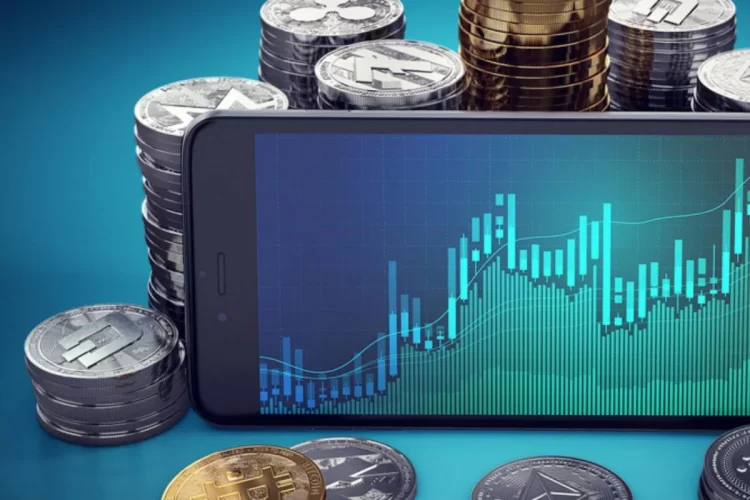As digital currencies become more popular, it is likely that they will be used for a wider range of purposes.
Digital currency, also known as digital money or electronic currency, is any form of currency that exists solely in digital form. Unlike traditional currencies like the US dollar or the Euro, which exist as physical notes and coins, digital currencies are intangible and only exist as electronic records.
Definition and Types
Digital currency is any currency that exists primarily in electronic form. It is not issued by any central authority, such as a government or bank, and it is not backed by any physical asset, such as gold or silver. Digital currencies are created and exchanged using cryptography, which is a process of encoding data in a way that makes it difficult to tamper with.
There are many different types of digital currencies, including:
- Cryptocurrencies: These are digital currencies that use cryptography to secure their transactions and to control the creation of new units. Bitcoin is the most well-known cryptocurrency.
- Virtual currencies: These are digital currencies that are not backed by any physical asset and are not regulated by any government. They are often used for online gaming and gambling.
- Central bank digital currencies (CBDCs): These are digital currencies that are issued by central banks. CBDCs are still in the early stages of development, but they have the potential to revolutionize the way we use money.
Digital currency, also known as digital money or electronic currency, represents a revolutionary shift in our understanding of money.

Advantages and Disadvantages
Unlike traditional currencies like the US dollar or the Euro, which exist as tangible banknotes and coins, digital currencies are intangible entities residing solely within the digital realm. This distinction opens up a world of possibilities and challenges, necessitating a closer look at this evolving landscape.
Demystifying the Intangible: Characteristics of Digital Currency
What defines a digital currency? Here are some key characteristics that set it apart from its physical counterparts:
1. Purely Electronic: Unlike the tactile nature of traditional currencies, digital currencies exist solely as digital records stored on computers or mobile devices. This eliminates the need for physical printing and distribution, paving the way for greater accessibility and efficiency.
2. Decentralization: Traditional currencies are controlled by central banks, giving them considerable power over the monetary system. In contrast, some digital currencies operate on decentralized networks, meaning no single entity has absolute control. This decentralization empowers users and fosters transparency.
3. Cryptographic Security: Digital currencies often leverage cryptography, a complex code system, to secure transactions and prevent fraud. This advanced security mechanism adds a layer of protection that traditional currencies may lack.
4. Global Reach: Transcending geographical boundaries, digital currencies enable instant and cost-effective transactions across the globe. This eliminates the need for intermediaries like banks, democratizing access to financial services and facilitating global trade.
Exploring the Landscape: Types of Digital Currency
The world of digital currency is not a monolith. Let’s delve into the different types that exist:
1. Cryptocurrencies: These decentralized digital currencies utilize cryptography for security and operate independently of central banks. Bitcoin, Ethereum, and Litecoin are some prominent examples.
2. Central Bank Digital Currencies (CBDCs): Issued by central banks, CBDCs are digital versions of national currencies. While still in their nascent stages, CBDCs have the potential to reshape central banking and monetary policy.
3. Virtual Currencies: These digital currencies are specific to online communities or platforms and often lack legal tender status. In-game currencies like V-Bucks in Fortnite are examples of virtual currencies.
4. Stablecoins: Designed to maintain a stable price, stablecoins are typically pegged to a real-world asset such as the US dollar or gold. This mitigates the volatility associated with other digital currencies.
Weighing the Benefits and Drawbacks: The Two Sides of the Coin
While digital currencies offer numerous advantages, it’s crucial to acknowledge the potential drawbacks:
Benefits:
- Faster and Cheaper Transactions: Digital currency transactions are processed quickly and efficiently, eliminating the delays and fees associated with traditional banking systems.
- Enhanced Security: Cryptography ensures secure transactions, reducing the risk of fraud and counterfeiting compared to physical currencies.
- Increased Accessibility: Anyone with an internet connection can access and use digital currencies, promoting financial inclusion and empowering individuals in underserved communities.
- Transparency and Accountability: Many digital currencies operate on public blockchains, providing transparency into transactions and fostering accountability.
Drawbacks:
- Volatility: The value of most digital currencies, particularly cryptocurrencies, can fluctuate significantly, making them risky investments.
- Regulatory Uncertainty: The legal and regulatory frameworks surrounding digital currencies are still evolving, creating uncertainty for users and businesses.
- Security Risks: Digital wallets and exchanges can be vulnerable to cyberattacks, highlighting the need for robust security measures.
- Limited Adoption: While gaining traction, digital currencies are not yet widely accepted by merchants and businesses, hindering their widespread adoption.
Looking Ahead: The Future of Digital Currency
The future of digital currency is filled with both promise and uncertainty. Technological advancements, regulatory clarity, and increasing user adoption are crucial for widespread mainstream acceptance. As this evolving landscape continues to unfold, one thing is certain: digital currency has the potential to reshape the global financial system, empowering individuals and revolutionizing how we interact with money.
However, digital currencies also have some disadvantages, including:
- Volatility: The value of digital currencies can be very volatile, which can make them risky investments.
- Security risks: Digital currencies are still a relatively new technology, and there are some security risks associated with them.
- Regulation: The legal status of digital currencies is still unclear in many jurisdictions.
Overall, digital currencies are a new and innovative form of money that offer a number of potential advantages over traditional forms of money. However, they also have some risks that investors should be aware of.
Here are some of the ways that digital currencies can be used:
Making payments: Digital currencies can be used to make payments for goods and services online or in person.
Investing: Digital currencies can be bought and sold as investments, with the hope of making a profit from their appreciation in value.
Speculating: Digital currencies can also be used for speculation, with the hope of making a profit from their volatility.
For the current BTC Price in USD, click here.
(Copyright@indiacsr)
Also Read:
- 4 Ways To Profit From Blockchain And Digital Currencies I India CSR
- What Is The Future Of Cryptocurrency In India? – India CSR
- The Role Of Crypto In Changing The Global Economy – India CSR







